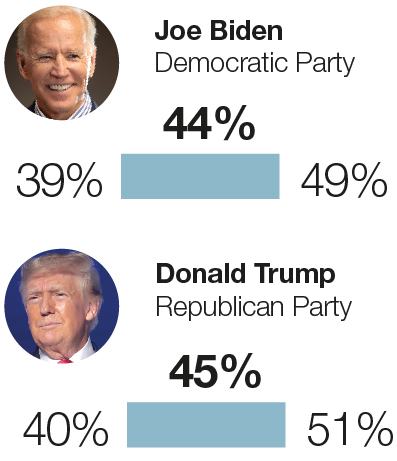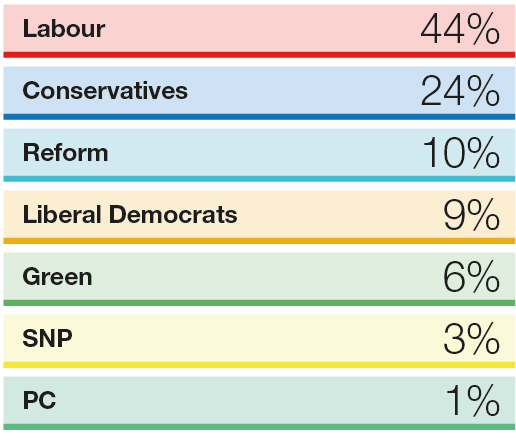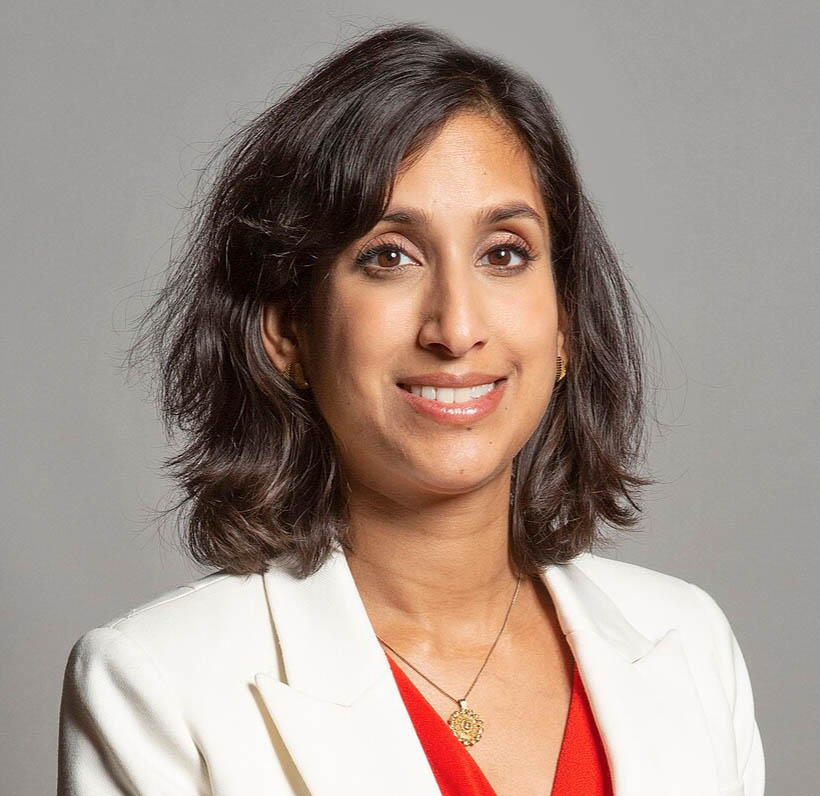
More than half of the world’s population, some four billion people, are participating in elections in 40 countries this year. Haggie Partners will be regularly tracking the key battleground issues in two of these contests: the US Presidential election on 7 November and the UK General Election expected no later than 28 January 2025.
8 March 2024
Edition 2
Key battleground issues
Geo-politics
Cyber
Climate
Economy
Risk
Geo-politics

The European Union’s top diplomat, Josep Borrell, admitted that the ‘era of Western dominance has indeed definitively ended’. The wars in Ukraine and Gaza, along with the anti-colonial uprisings in Africa’s Sahel region, have significantly increased the risk of Europe becoming ‘geopolitically irrelevant’, saying that ‘Russia has managed to take advantage of the situation’. Meanwhile gold, used as a reliable store of value during periods of political and financial uncertainty, has risen by more than $300 an ounce since the start of the Israel-Hamas war and some analysts believe it could break the $2,300 mark.
Cyber

The UK government has committed an additional £31 million to protect the UK’s democratic processes from disruption and provide new security provisions to elected representatives over the next year. The investment will be used to enhance police capabilities, increase private sector security provisions for those facing a higher risk, and expand cyber security advice to locally elected representatives. Meanwhile, the chair of the US Senate select committee on intelligence, Mark Warner, said the 2016 election interference campaign by the Kremlin will look like “child’s play” compared with 2024, largely due to the impact of AI increasing the scale and speed of these operations. State and local officials have been sounding the alarm on lax funding and resources to deal with the election amid increasing physical threats and the looming threat of AI.
Climate

With activists from Just Stop Oil and Extinction Rebellion protesting in the City of London last week, today’s insurance businesses are being repeatedly confronted by market disruptors. During 2024, we can expect to see increased regulatory pressures, particularly by climate activists, that will continue to challenge insurance carriers. The insurance industry on both sides of the Atlantic was disappointingly under-represented in Cop28 main discussions, and yet many of these commitments will fail without the active involvement of insurers to tackle the impact of climate change.
Economy

The US and the UK elections are likely to show an increase in support for populist parties, as witnessed by the apparent growth of Reform UK, led by Richard Tice and backed by former leader Nigel Farage, and now commanding 10% in the national polls. There is a general trend towards protectionism and nationalism in western policymaking and economic issues and protecting national strategic interests will take precedence. In these circumstances businesses should be alert to regulatory risk.
Risk

With a record number of voters heading towards the ballot boxes this year, businesses around the world are moving to safeguard against the cancellation of government contracts or financial losses arising from civil unrest or political violence. There is some evidence suggesting businesses in the UK and US are turning to ‘contract frustration’ insurance and other forms of political risk cover to protect their interests.
Biden-Trump rematch looks certain
as Sunak hopes for Budget bounce
7 March 2024 from the Economist

4 March 2024 from BBC News

State of the Union address
President Biden has delivered the State of the Union address to US Congress on Thursday 7 March, which comes as the president faces intensifying worries about his age and a host of confounding international crises and domestic challenges that include health insurance.
The outcome of the presidential election in November could jeopardize coverage for millions, even as a record number of people in the US are signing up for health insurance cover through the Affordable Care Act, or ‘Obamacare’. Trump has renewed his threat to abolish the health law if he returns to the White House for a second term.
The SOU speech has become something of a make-or-break moment for a candidacy in need of fresh momentum for the general election fight ahead with millions of viewers tuning in not just to hear the words he says but how he articulates them. That ‘vision thing’ is a tough sell to an average voter given a re-elected Biden would be 85 during his second term.
The First Lady Jill Biden’s email to supporters acknowledged her husband’s age. “Joe is 81, that’s true, but he’s 81 doing more in an hour than most people do in a day. Joe has wisdom, empathy, and vision. He’s learned a lot in those 81 years. His age, with his experience and expertise, is an incredible asset and he proves it every day.”
The speech covered Biden’s accomplishments as instrumental to lowering costs and revitalising the economy.

Social media watch
Social media is the main source of information globally
Some 56% of the world’s 8 billion people now say that social media is their main source of knowledge across the world, according to a new survey by Ipsos. Only 11% suggest newspapers or radio. This, say experts, is placing their knowledge in the hands of a largely unregulated market.
Social media is increasingly using deepfake videos, generated using artificial intelligence, which could provide the “perfect storm” for the UK’s adversaries to influence the upcoming general election, the UK home secretary has warned. James Cleverley MP said ahead of a meeting with technology firms in Silicon Valley that the era of deepfake videos disrupting elections across the globe was ‘already in play’. Earlier this month tech giants including Meta, Microsoft, OpenAI, and 17 others agreed to work together to prevent deceptive AI content, but this pact did not commit to banning deepfake videos.
Another popular form of social media, and seemingly a vital news resource, is Instagram where Donald Trump supporters have been creating and sharing AI-generated fake images of black voters to encourage African Americans to vote Republican. The BBC’s Panorama programme discovered dozens of ‘deepfakes’ portraying black people as supporting the former president. There is no evidence directly linking these images to Trump’s campaign.

Chancellor last chance to shift the political dial
Here are all Jeremy Hunt’s headline budget announcements:
- National insurance cut by 2p in April – from 10% to 8%
- Freeze on alcohol duty extended until February 2025
- 5p cut to fuel duty to continue for 12 months
- VAT registration threshold for businesses upped from £85,000 to £90,000 from April
- £1m towards memorial for Muslims who died in two World Wars
- Repayment period doubled to 24 months for new budgeting advance loans for low-income people
- £90 charge for obtaining debt relief order abolished
- Household Support Fund kept at current level for six months
- Introduction of British ISA, allowing extra £5,000 investments in UK
- £45m for medical charities, including £3m for Cancer Research UK
- Nearly £6bn for the NHS, including £3.4bn for “outdated” IT systems
- £75m for violence reduction units and “hotspot policing”
- £105m over next four years to build 50 special free schools
- Introduction of excise duty on vaping products and one-off increase in tobacco duty
- Reduction of higher capital gains tax rate on property from 28% to 24%
- Abolishment of non-dom status – a Labour idea that will raise £2.7bn a year
- High Income Child Benefit Charge threshold to be raised from £50,000 to £60,000
“Budgets are 80 per cent political and the OBR [office for budget responsibility] makes it a little bit economic.”
former Labour MP, and ex-shadow chancellor, Chris Leslie, told City AM.

Conventional political wisdom suggests that Jeremy Hunt announced crowd-pleasing NI cuts because of public demand and it seems unlikely to do the Conservatives election campaign any harm. But is it what the public really wants?
New data from Delta polling this week shows that more than four in 10 respondents (41%) believed that taxes and public spending should be kept at the level they are now. A further third (34%) said they would like to see taxes increased with greater spending on public services, while one in seven (14%) believed that taxes and public spending should be reduced. Among Conservative voters, that figure rose only marginally to one in six (17%).
This isn’t the kind of analysis the prime minister Rishi Sunak wants to hear. When he was chancellor himself he chose to hang a picture of Nigel Lawson above his desk, hailing the chancellor from 1983-1989 as ‘transformational’.
Hunt and the prime minister have spent the past few weeks locked away looking for ways to offer a tax cut on the scale of that announced last year to boost the Conservatives’ flagging poll ratings in their final budget before an election. Labour is leading national polling by some 20%.
The chancellor’s budget statement revealed key election campaign themes saying: “We’ve worked so hard to get through the really challenging period that we’ve come through. Don’t throw it away.” And ”Stick to the plan.”
Labour’s shadow chancellor Rachel Reeves has estimated that even with a 2p cut in NI, the average household will be £1,040 a year worse off than they would have been if the thresholds had risen with inflation. “Fixing the nation’s roof when the sun was shining? The Tories have broken the windows, kicked the door in and now are burning the house down.”
Manifesto watch

Click on the links to read the latest manifesto related information
Women to watch #1

Claire Coutinho
Claire Coutinho has one of the toughest jobs in government as energy secretary, charged with making sure the UK hits net-zero carbon emissions by 2050. As if this were not tough enough, the smart money is on Coutinho being Jeremy Hunt’s replacement as chancellor. With several members of the cabinet, including Hunt, expecting to lose their seat in Parliament, a further sign of Coutinho being ‘on manoeuvres’ is that she is planning to make a ‘vision speech’ in the coming months.
Election campaign watch
15–18 July: The Republican National Convention is scheduled to be held in Milwaukee.
19–22 August: The Democratic National Convention is scheduled to be held in Chicago.
16 September: The first presidential debate is scheduled to be held at the Texas State University in San Marcos, Texas.
25 September: The only vice presidential debate is scheduled to be held at the Lafayette College in Easton, Pennsylvania.
5 November: Election Day (the Tuesday after the first Monday of November).
16 March: Welsh Labour leadership election result to be announced.
27 March: House of Commons rises for Easter recess.
15 April: House of Commons returns from Easter recess.
19 April: World Bank and IMF spring meetings.
2 May: London Mayoral and London Assembly elections.
2 May: Local elections are a big test for Rishi Sunak (First Thursday of the month).
28 January 2025: The General Election must be held no later than this date.
Get in touch
Cressida.Tarver@haggie.co.uk



